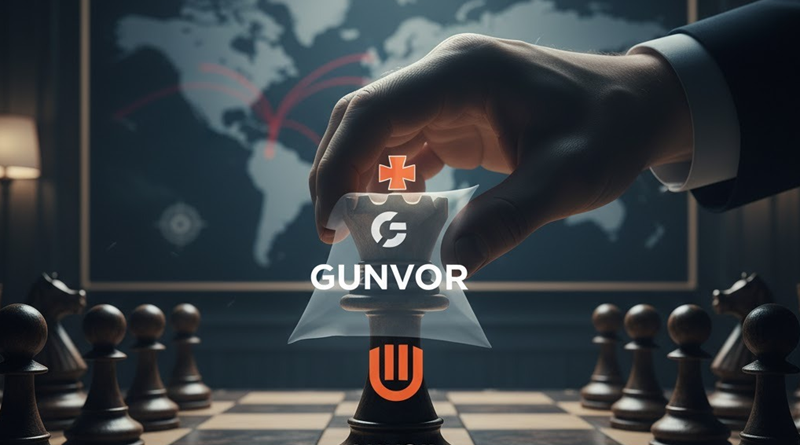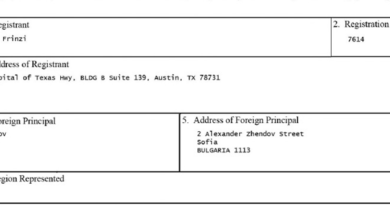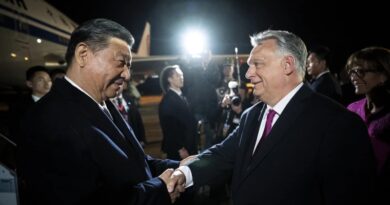Phantom Sale: How the Kremlin Protects Lukoil Through Gunvor
A Deal with Little Market Logic but Strong Geopolitical Logic
The sudden emergence of Gunvor as a potential buyer of Lukoil’s global assets has sparked a wave of speculation in the energy world. Yet this story is not about the invisible hand of the market. It is about survival, geopolitics, and the Kremlin’s determination to preserve one of its most powerful instruments of influence abroad.
Gunvor is not a financial nor a strategic investor. It is a trading house—flexible, secretive, and opportunistic, but without the financial or operational capacity to run refineries or fuel retail networks. The $22 billion price tag mentioned by the Financial Times is far beyond Gunvor’s actual capabilities, particularly under current sanctions.
For years, whenever the sale of Lukoil’s assets in Bulgaria or Romania was discussed, Gunvor’s name appeared only among potential crude suppliers—not among candidates to acquire the refineries themselves. Yet just days after Washington imposed sanctions on Lukoil, the company suddenly announced that it had granted Gunvor exclusive rights to purchase all of its assets.
Such a move defies corporate logic. Exclusive agreements of this magnitude are not concluded overnight; they require months of negotiation, due diligence, and regulatory approval—unless the decision comes from above, backed by political will and trust. Given the scale of this deal, that trust must run deeper than business—and likely includes approval from the Kremlin and Vladimir Putin personally.
A Defensive Maneuver Disguised as a Sale
What we are witnessing is not a sale but a defensive maneuver—a way for Lukoil to retain control of its assets while creating the illusion of compliance with sanctions. The logic is simple: if a deal with a Western buyer is “in progress,” the company can claim that it is restructuring and negotiating an exit from ownership.
Lukoil has provided no public documentation, no offers, and no prospectus—only the vague phrase “pre-agreed terms” with Gunvor. This alone suggests that Gunvor was selected long ago as a backup partner, ready to step in if sanctions took effect.
Support Independent Analysis
Help us keep delivering free, unbiased, and in-depth insights by supporting our work. Your donation ensures we stay independent, transparent, and accessible to all. Join us in preserving thoughtful analysis—donate today!
Meanwhile, Gábor Szendroi, a Hungarian investment banker from Concorde MB Partners and a long-time associate of Lukoil, had been quietly leading an official sale process months earlier. According to media leaks, Gunvor was not even on the shortlist, which included KazMunayGas, SOCAR, Vitol, MOL, several Turkish companies, US, Qatari and British investors. While Szendroi was soliciting offers from legitimate buyers, Lukoil’s trading arm, Litasco, publicly denied any intention to sell. When questioned by the Bulgarian government, Lukoil’s Moscow headquarters also categorically rejected the notion of a sale.
When the Kremlin Writes the Script
Sources close to the Kremlin confirm what many already suspect: decisions about Lukoil’s assets are not made by formal majority owner Vagit Alekperov, but by Vladimir Putin and his administration. Lukoil’s management may simulate market behavior, but the Kremlin writes the script. Gunvor’s “urgent selection” was almost certainly approved at the highest level—by Putin himself—as a crisis measure.
According to reports circulating in Russian social media, Putin believed that after his meeting with Donald Trump in Alaska, sanctions might soon be eased, restoring Russia’s access to Western credit and eliminating the need to divest assets such as Lukoil’s and Rosneft’s. Moscow’s goal was therefore not to sell, but to create the appearance of a sale through the emergency arrangement with Gunvor.
Lukoil is far more than a private oil company. Its global assets and over 5,000 gas stations serve as logistical and influence nodes in the Kremlin’s international network. Russia’s energy giants—whether state-owned or nominally private—function as instruments of foreign policy and intelligence. Forced divestments in Europe threaten this infrastructure, especially in the Balkans, where Lukoil’s presence remains a key outpost.
The Trafigura Precedent
The current scheme mirrors earlier maneuvers. When Lukoil sold its Italian refinery ISAB under sanctions pressure, a consortium involving the trader Trafigura was hastily assembled as an intermediary. The refinery’s new owner quickly became dependent on Trafigura for supplies, with refining margins collapsing even as traders’ profits held steady.
The same logic applies now. Refineries processing discounted Russian crude can produce cheaper fuel, but refining margins are thin and political risks are high. Serious Western investors avoid such assets—especially amid growing imports of cheap fuel from India, Turkey, and Egypt.
If the ISAB sale serves as a precedent, the Gunvor deal reveals a similar pattern. Despite the far greater scale and risk, there is no evidence that Gunvor possesses the capacity to operate refineries or manage retail networks. The only plausible option would be to retain Lukoil’s existing management—merely rebranded under Gunvor’s umbrella.
The Illusion of Compliance
Estimates of the supposed global sale vary wildly—from several billion to over $20 billion—underscoring how little market reality underpins the transaction. In truth, this is a hidden, heavily discounted deal, in which part of the price will likely be deferred or never paid if a “reverse sale” occurs. Gunvor co-founder Torbjörn Törnqvist hinted that the purchase might proceed gradually and without significant upfront payment—an admission that only reinforces how far removed this deal is from genuine market practice.
For reference, Lukoil’s Bulgarian assets alone were valued at more than $2 billion in earlier negotiations with real buyers—figures that reflected genuine offers and cash commitments. The real priority, therefore, is not profit but preservation: ensuring that Lukoil’s assets remain within the “family” and beyond the reach of authentic Western investors.
To reinforce his leverage and accelerate regulatory approval, Törnqvist issued a pointed warning: if OFAC, the EU, or national regulators delay authorization of the ownership transfer, refinery operations and fuel supplies could be disrupted—causing shortages and public unrest. The statement sounded less like a business concern and more like a thinly veiled threat, an implicit form of blackmail aimed at pressuring regulators to move quickly.
Europe’s Test of Resolve
Behind this elaborate smokescreen lies a clear message from Moscow: Lukoil’s international assets are not to be sold. They will be preserved—perhaps under a Western flag, but with Russian control and Russian managers firmly in place—until the Kremlin can return to the “big game” of the global oil market.
The question now is whether OFAC, European regulators, and the governments of Bulgaria and Romania will see through this illusion before these “temporary solutions” harden into a permanent layer of Russian influence across Europe’s energy infrastructure.
Ilian Vassilev




